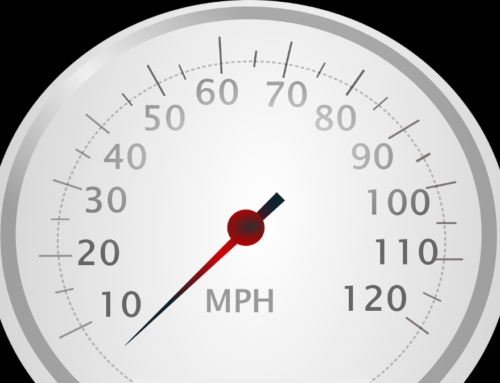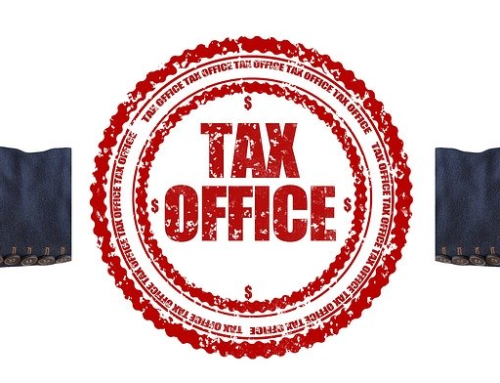If you’re considering bookkeeping or other financial services, words such as “bookkeeper,” “accountant” and “CPA” are often used interchangeably to refer to financial professionals. However, there are important differences between these roles and understanding those differences will help you determine who can provide you with the most cost-effective results.
The Role of a Bookkeeper
A bookkeeper is a person who records the day-to-day financial transactions of a business.  He or she is usually responsible for recording purchases, sales, receipts and payments.
He or she is usually responsible for recording purchases, sales, receipts and payments.
Bookkeepers are efficient at operating bookkeeping software like QuickBooks. They perform much of the data entry related to company finances. In general, good bookkeepers need to have a base knowledge of accounting, 5-10 years of experience with bookkeeping and efficient with the chosen software, too.
Bookkeepers will typically be responsible for:
- Processing payroll information
- Creating and following up on sales invoices
- Entering, paying and reconciling vendor bills into the system
- Sending statements to customers and invoices to vendors
- Updating information in QuickBooks or other financial software
- Keeping track of debits and credits to create a trial balance
- Ensuring employees submit the correct paperwork for payroll
- Balancing and recording ledgers, prior accounts and other records
- Tracking all financial data for back up and required to stay compliant
- Assist in the creation and review of forecasts and cash flow statements
A bookkeeper ensures bills, invoices and other transactions are handled correctly. This professional can also keep financial information organized for tax season or for an tax specialist. In addition, by reporting on financial data, a bookkeeper can help a business determine whether any strategic or tactical changes need to be made to expenses, bills or any other part of the finances.
One of the most important roles of a bookkeeper is maintaining a general ledger. This is the record of all expense and sales receipts for a company. Depending on the number of transactions a company completes, these records may need to be updated daily or weekly. To stay compliant with tax rules, your business needs to record all sales and purchases made and the IRS requires some purchases and sales to include supporting documents.
A bookkeeper can make the process simple and can ensure your records are complete and easy for you to review.
The Role of an Accountant
An accountant analyzes, verifies, discloses or provisions assurances about  financial information that helps managers, investors, tax authorities and others make various decisions.
financial information that helps managers, investors, tax authorities and others make various decisions.
Most accountants have at least one degree in accounting and will prepare and adjust entries and accounts. The accountant will also prepare financial statements for a company and will advise a company’s managers and executives about how specific decisions could impact its business finances.
An accountant will typically:
- Prepare balance sheets, tax returns, income statements and other statements
- Create allowances for uncollected accounts
- Analyze Accounts
- Make adjusting entries for employee wages
- Prepare for Audits
- Verify the financial information entered into financial software or ledgers
- Coordinate and review work with the bookkeeper
An accountant, in other words, will take the financial information recorded by the bookkeeper and will use it to generate information useful to a business. The information from an accountant can help an organization determine how to financially optimize the business finances. Once an accountant has helped to determine any changes that need to be made to specific transactions, the bookkeeper can normally handle the changes or adjustments to the transactions.
Accountants often help a business with big picture decisions and help guide an organization in making changes to secure a better financial outcome.
Small businesses may need to work with an accountant annually or occasionally when making long-term or strategic decisions.
The Role of a CPA
CPAs (Certified Public Accountants) are qualified accountants that need extensive training and a degree in accounting in specific countries where they are licensed to provide accounting services directly to the public. They must also meet regulations regarding experience and ongoing education before they pass the Uniform Certified Public Accountant Examination.  Every state in the USA has slightly different rules about CPAs yet they all need to renew their certification every two years in their state.
Every state in the USA has slightly different rules about CPAs yet they all need to renew their certification every two years in their state.
CPAs take on more advanced duties and obligations. They oversee and audit company financial information and may work with an organization’s bookkeepers and accountants. CPAs offer a range of financial, tax and auditing services.
Are Bookkeepers Less Expensive Than Accountants?
The costs of bookkeepers will depend on a number of factors, including the complexity of a business and the specific needs of an organization. A small business will not usually need complex bookkeeping when compared to a large corporation with multiple offices spanning multiple geographies.
The type of bookkeeper hired can also make a difference. Outsourced bookkeeping services, for example, are generally far less expensive than an in-house bookkeeper. Many small businesses use outsourcing bookkeeping to keeps costs variable and staffing overhead lower.
As financial software is increasingly used for bookkeeping, programs such as QuickBooks are becoming more sophisticated. Thus, an experienced bookkeeper can perform many of the traditional accounting. Today’s programs may allow a bookkeeper to not only record day-to-day transactions, but also to generate some financial reports and statements. If your bookkeeper is responsible for additional related business tasks, this arrangement may help you save money when compared with hiring an accountant or another business administrator for some of those same tasks.
In general, bookkeepers are less expensive than accountants or CPAs. They can also help a business save money in the long-term. By maintaining good records, bookkeepers reduce the amount of time accountants or tax professionals need to review documentation and data, reducing those costs. Bookkeepers can also alert a company of some obvious issues or problems with bookkeeping or finances early, which can help a business address those issues quickly, before they become more complex and expensive to fix.
How Do You Choose a Qualified Bookkeeper?
While some small businesses only see their accountant or  CPA once a year, a bookkeeper is more likely to be consulted more regularly. Since you will be seeing your bookkeeper more often and rely on her, you will want to take the time to find the right fit.
CPA once a year, a bookkeeper is more likely to be consulted more regularly. Since you will be seeing your bookkeeper more often and rely on her, you will want to take the time to find the right fit.
When you look for a bookkeeper, it is important to:
- Consider your needs. Do you need someone to be at your office monthly or weekly? What deliverables do you need from the services of a bookkeeper?
- Look for bookkeeping services in your location & industry. If you are a small business, ensure that the bookkeeper has been stable in your local area for 10 years or so. You will want to consult with them often. Also, look for a bookkeeping service with experience in your particular sector. They will better understand your specific needs and the compliance issues surrounding your company.
- Check qualifications. Look for bookkeeping services or a bookkeeper with the background and experience needed for the task. If you use specific financial software, like QuickBooks, make sure you will be working with someone who is extremely experienced with that program.
- Ask for references. How satisfied are other customers with the bookkeeping services they are getting?
- Explore additional services. You will want a long-term relationship with a bookkeeping service as your business grows. Choose a bookkeeping service that has managed payroll, can provide financial forecasting services and will be flexible when you need help.
Focus on what you do best.
Your Biz Manager (www.YourBizManager.com) can help. You can start the process by sending us an e-mail (info@YourBizManager.com) with your contact information, a list of your bookkeeping or business support needs or by texting or calling 424-246-6006.
Receive a FREE consultation and 50% off.
Click here or contact us to receive your free consultation and 50% off your first four (4) hours of service. Just mention this post.
 About Doris Cristiano & YourBizManager.
About Doris Cristiano & YourBizManager.
As an independent bookkeeper, Doris has been providing flexible business services in Santa Monica and West Los Angeles since 1997. To support Clients’ needs and growth, YourBizManager tailors its services to each unique business situation and works closely with its clients at their business or home office. More About Us







